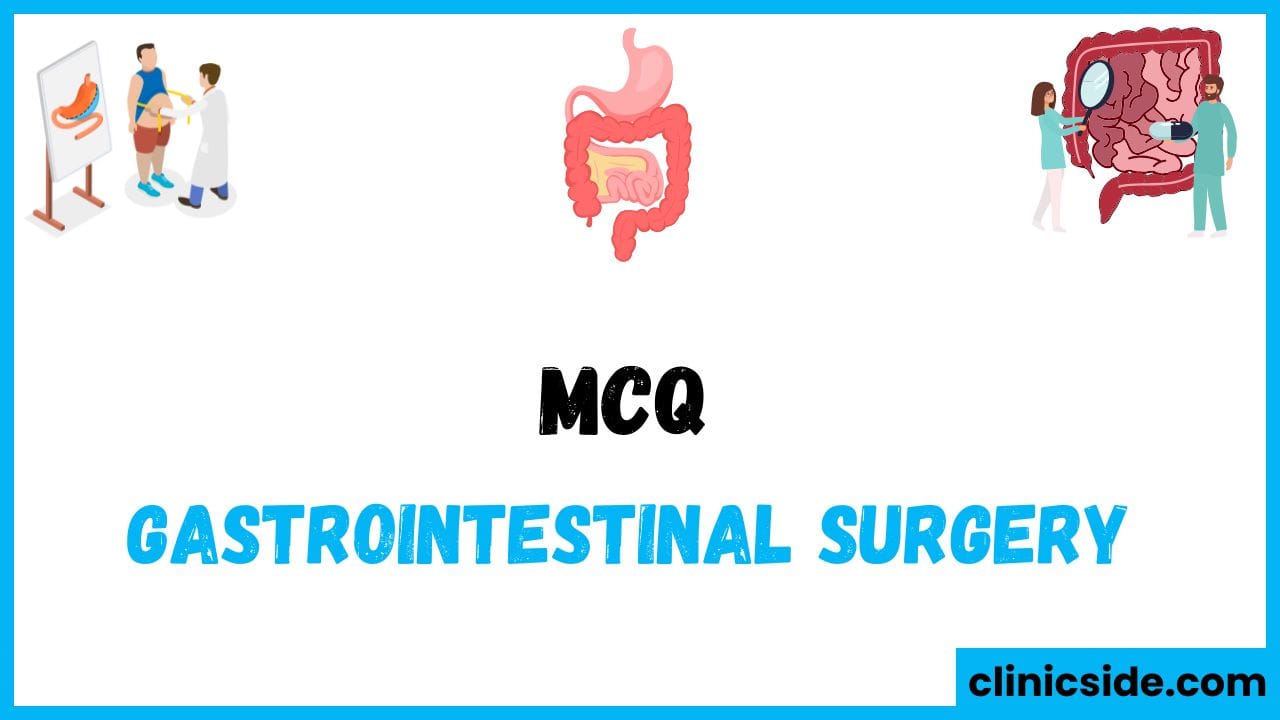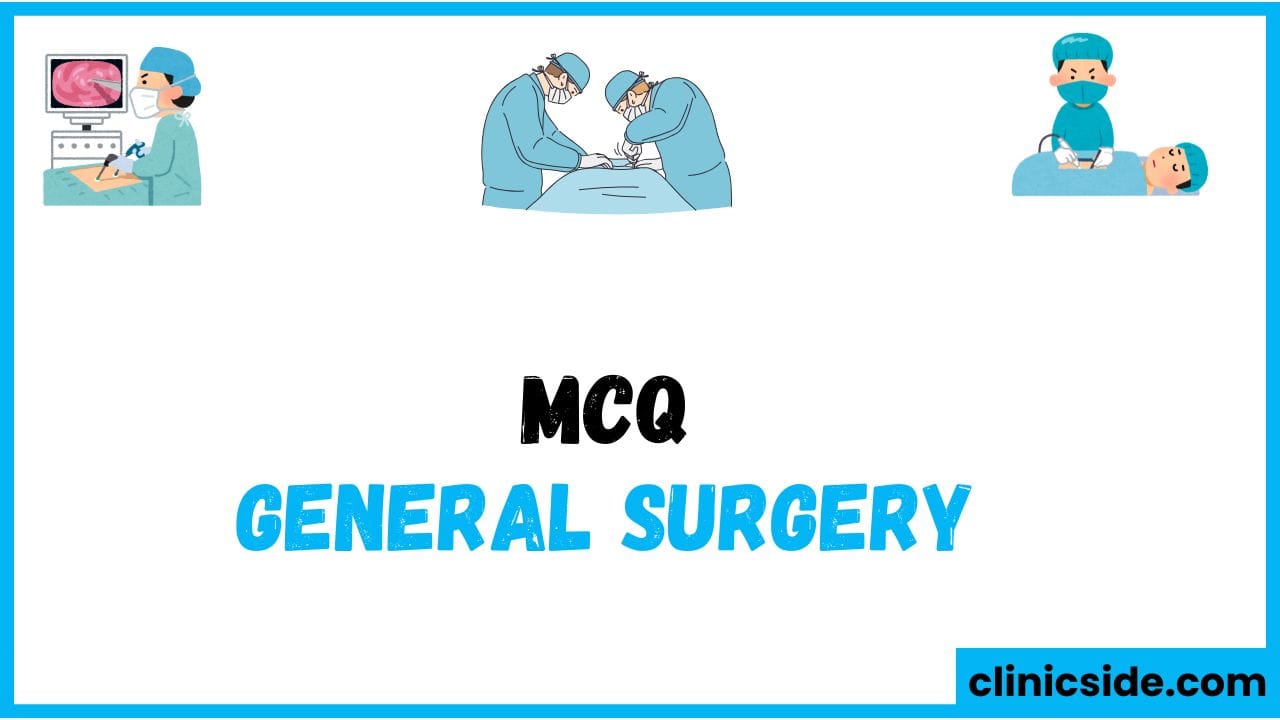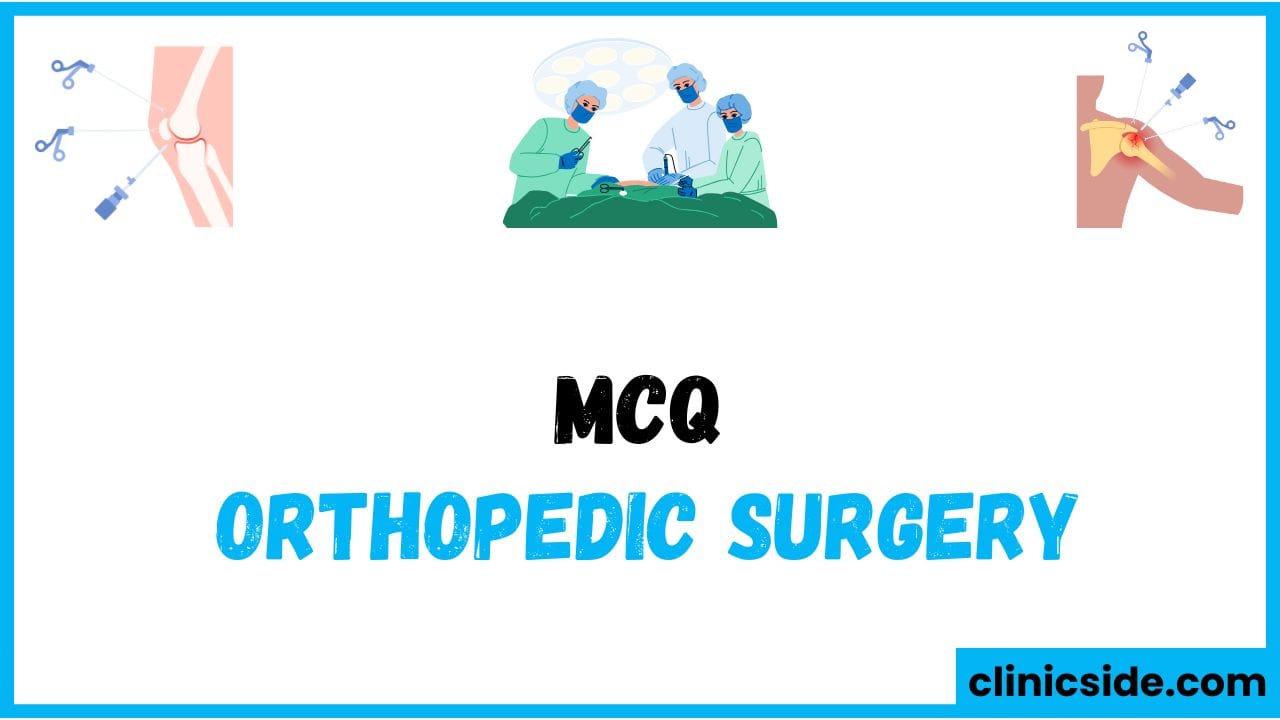Quiz
Available options: 1 to 20
Topics covered in This MCQs
Causes and Complications in Gastrointestinal Surgery
Adhesions are the most common cause of bowel obstruction in adults, typically resulting from previous surgeries or abdominal infections. Anastomotic leaks are the most frequent complication following gastric surgery, leading to risks such as infection and peritonitis. In peptic ulcer disease, gastrointestinal perforation most commonly occurs in the first part of the duodenum.
Emergency Surgical Conditions
Peritonitis caused by bowel perforation is a critical condition requiring emergency laparotomy. CT scans are the most reliable diagnostic tool for acute appendicitis due to their high accuracy. Hartmann’s procedure is commonly performed to manage perforated diverticulitis by resecting the affected bowel segment and creating a temporary colostomy.
Management of Specific GI Disorders
In Crohn’s disease with intestinal obstruction, the preferred surgical treatment is bowel resection combined with stricturoplasty. Duodenal ulcers are the most frequent cause of upper gastrointestinal bleeding. For perforated gastric ulcers, omental patch repair is the standard surgical procedure.
Surgical Interventions for GI Disorders
Laparoscopic resection is the first-line treatment for intussusception in adults. Endoscopy is essential for diagnosing and managing hematemesis and melena. For achalasia, Heller myotomy is performed to relieve symptoms of esophageal obstruction.
Neonatal and Chronic Conditions
Pyloric stenosis is the most common neonatal surgical emergency, characterized by projectile vomiting. Nissen fundoplication is the preferred surgical treatment for recurrent GERD with hiatal hernia, offering symptom relief and hernia repair. Adenocarcinoma is the most prevalent type of gastric cancer, accounting for the majority of cases.
Surgical Treatments for Critical Conditions
Laparoscopic appendectomy is the treatment of choice for perforated appendicitis, offering faster recovery and reduced complications. For Barrett’s esophagus with high-grade dysplasia, esophagectomy is recommended to prevent progression to cancer. Diverticulitis is the leading cause of colonic perforation, often requiring prompt surgical management.
Post-Surgical and Emergency Management
In emergencies involving sigmoid volvulus, sigmoid colectomy with colostomy is performed to relieve obstruction and prevent ischemia. Skin irritation is the most common complication of a colostomy, which can be managed with proper skincare and hygiene practices.





